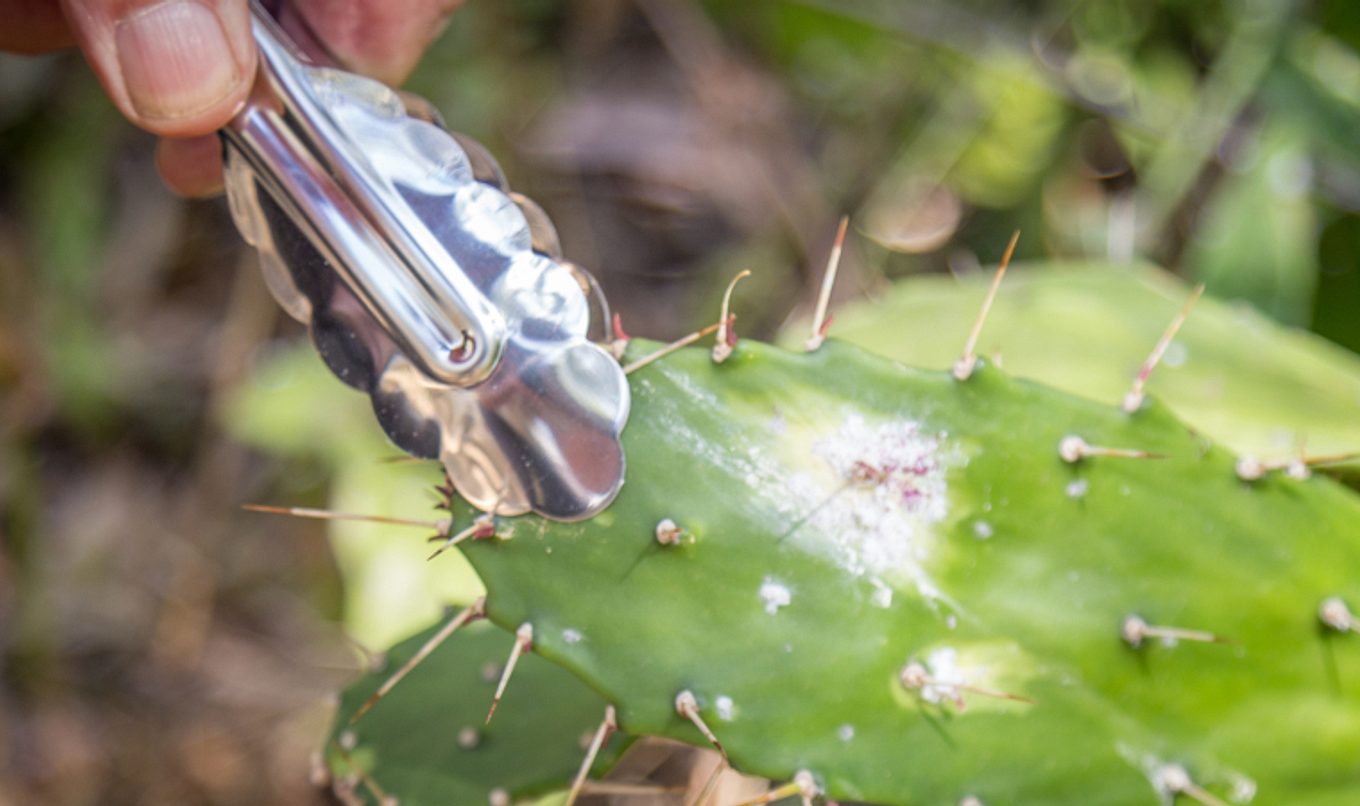Cochineal insects wage war on pest cactus
Thousands of Cochineal insects are being released into Onkaparinga Gorge National Park to tackle a declared pest cactus.

The drooping pear (Opuntia monocantha) has been spreading up the gorge and because it is large, spikey and in inaccessible terrain, it is a major problem to control.
Staff from Natural Resources Adelaide Mt Lofty Ranges, Friends of Onkaparinga Gorge and other volunteers are dropping cochineal-infected pieces of cactus into drooping pear infestations to speed up the spread of the cactus-busting bug insects.
While the insect is best known for making red dye and food colouring, it is also an effective biological control. The female cochineal beetles suck juice out of the cactus until it becomes exhausted and dies.
Opuntia cactus has a notorious reputation – its numerous sharp spines can injure people, stock and wildlife.
It is a significant environmental weed that competes with native vegetation and forms dense impenetrable thickets. The cactus is a host for fruit fly and it offers refuge for pests such as foxes and rabbits.
The cochineal beetle was first introduced at five to ten sites in the Onkaparinga region in spring 2015, and the insects have spread several hundred metres around these initial sites.
From this initial action at least 20 to 50 mature drooping pear plants have died, and thousands more are infected. The insects will continue to breed and expand across the infestation.
This short video contains further information about the cactus in Onkaparinga gorge.

